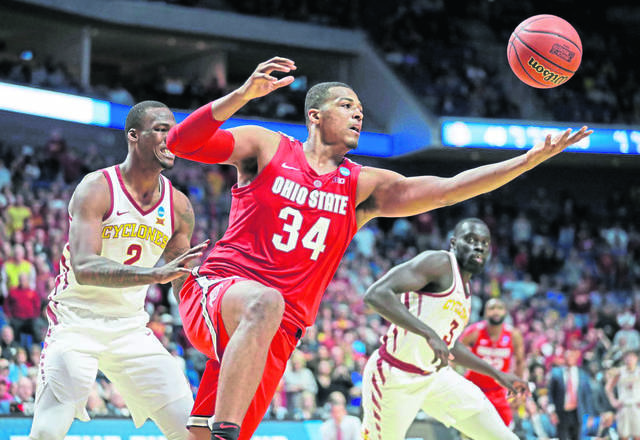The NCAA announced policies designed to keep March Madness on track for a safe and successful tournament. These policies include holding all 68 games in the Indianapolis area and limiting the number of people in each venue to 25% of its capacity. These restrictions will serve to limit the spread of the coronavirus and minimize exposure to all participants.
The NCAA also provided policies if a team must withdraw from the tournament due to infections or quarantine requirements, making it impossible for a team to field a team of at least five safe players. If a mid-major or low-major single conference bid team must withdraw, a team from their own conference would replace them. If an at-large team must withdraw, they will be replaced by a replacement team, rank ordered by the Selection Committee, akin to the player taxi squad used by the National Hockey League. The deadline for all such change is 48 hours after the Selection Committee reveals the bracket on March 14.
The NCAA covid-19 policy becomes problematic after that 48-hour rule expires, when teams that must withdraw are not replaced, with their opponent winning under a no-contest rule, and no reseeding performed.
This means that if any of the likely No. 1 seeds, Gonzaga, Baylor, Michigan or Illinois, must withdraw prior to the start of the tournament, a replacement team like Syracuse, Seton Hall, Utah State or Duke, equivalent to a No. 12 or No. 13 seed, would take their position in the bracket.
Although seeds are assigned based on the quality of the teams, the path to the Final Four is determined by the sequence of opponents each team must face. This is why four No. 11 seeds have reached the Final Four since 1985, while only a total of two No. 9 or No. 10 seeds have achieved this result. In general, No. 11 seeds have a more favorable path to the Final Four than No. 9 or No. 10 seeds, by avoiding No. 1 and No. 2 seeds as long as possible and providing opportunities for such high-ranked teams to be upset by lesser competition earlier in the tournament.
Reseeding the entire bracket due to a single withdrawal makes no sense. However, given that since 1985, 83% of the Final Four Teams have been amongst the top 16 teams (those seeded No. 1-4), keeping this group intact preserves the integrity of the selection process.
How can this be done? Use the Sweet 16 round to reseed all 16 teams. Then if a No. 1 seed must be replaced by a replacement team, with the replacement team benefiting from playing a No. 16 and No. 8 seed in the rounds of 64 and 32, respectively, they will then be reseeded based on their strength, not due to covid-19 chaos.
In previous years, such a mid-tournament reseeding would have been problematic, given the prescribed locations of each round. However, with all games played in Indianapolis, and the Sweet Sixteen teams are likely remaining there after their first two victories, such a policy is practical to implement. More importantly, it reduces the impact of COVID-19 on the outcome of the tournament, namely, who will eventually reach the Final Four and ultimately be crowned the National Champion.
The NCAA is giving March Madness the opportunity to be successful amid the backdrop of covid-19. With 20% of games this season cancelled or postponed, it is conceivable that one or two teams may need to withdraw due to covid-19. Exercising great care, this can be avoided. However, with new, more contagious variants of the coronavirus circulating, anything is possible.
For the benefit of the coaches, players and fans, a Sweet 16 reseeding would minimize the impact of covid-19 on the final results of the tournament. Such a policy would preserve the efforts of the Selection Committee by reduce the impact of covid-19 on their analysis, so who cuts down the net on April 5 is the team most deserving of being named national champion.
Sheldon Jacobson is Founder Professor of Computer Science at the University of Illinois at Urbana-Champaign. His research on risk-based security provided the foundational concepts that led to TSA PreCheck.








